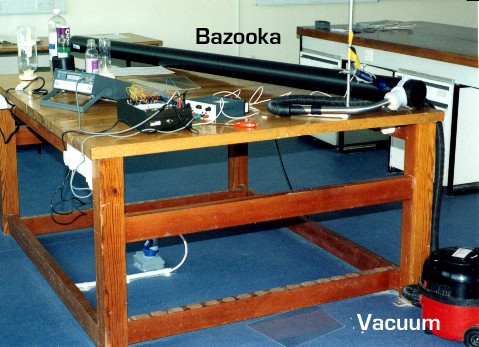This was built as an experiment to amuse secondary school pupils at "Make It In Scotland", a careers event organised by Careers Scotland, which took place in Motherwell in February and March 2003. Bell College ran a stand and I became involved as a result.
The mechanical engineering technicians built the bazooka. It uses a vacuum cleaner to suck a projectile up a long pipe. The intension is that the missile should then carry on out the end rather than being brought to a dead stop by the suction. To get the best results, both ends are blocked off with card, then the card at the back of the tube is removed quickly. The vacuum keeps the second card in place until it is knocked off by the projectile.
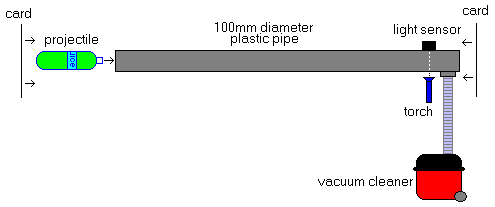
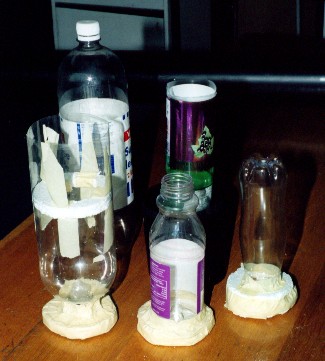
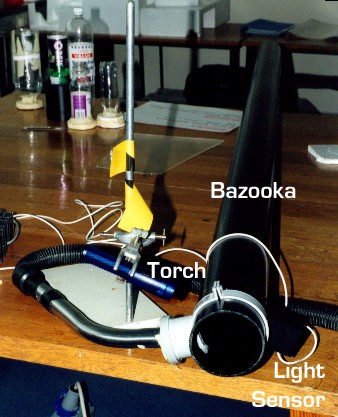
Missiles were constructed from a variety of plastic drinks bottles. The trick is to have the diameter only slightly less than that of the tube. Too big a gap and the suction will be less effective; too small and the projectile is liable to get stuck. A discarding sabot is handy. There also seems to be an optimum weight - if the missile is too light it slows down too much as it passes the point where the vacuum cleaner is attached.
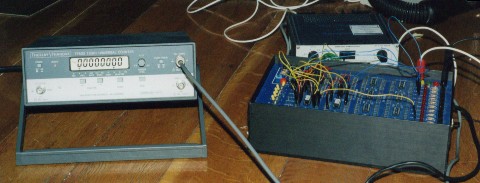
As a secondary part of the exercise, we also designed a sensing circuit to measure the speed of the projectile as it left the tube. This used a beam of light from a torch crossing through two holes in the tube and striking a light activated switch. Rather than have two sensors spaced a short distance apart, we opted to have one sensor, and calculated the speed from the length of the missile divided by time the beam was broken.
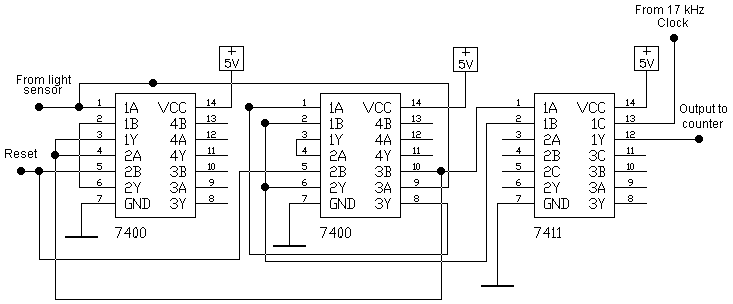
The youngsters were set two tasks; half of them attempted to design build missiles and aimed to get them to go as fast as possible. The other half built the circuit from our instructions. The record was 28.5mph/45.6kph.
On the final day we managed to hit one of the organisers, so we were well pleased.
